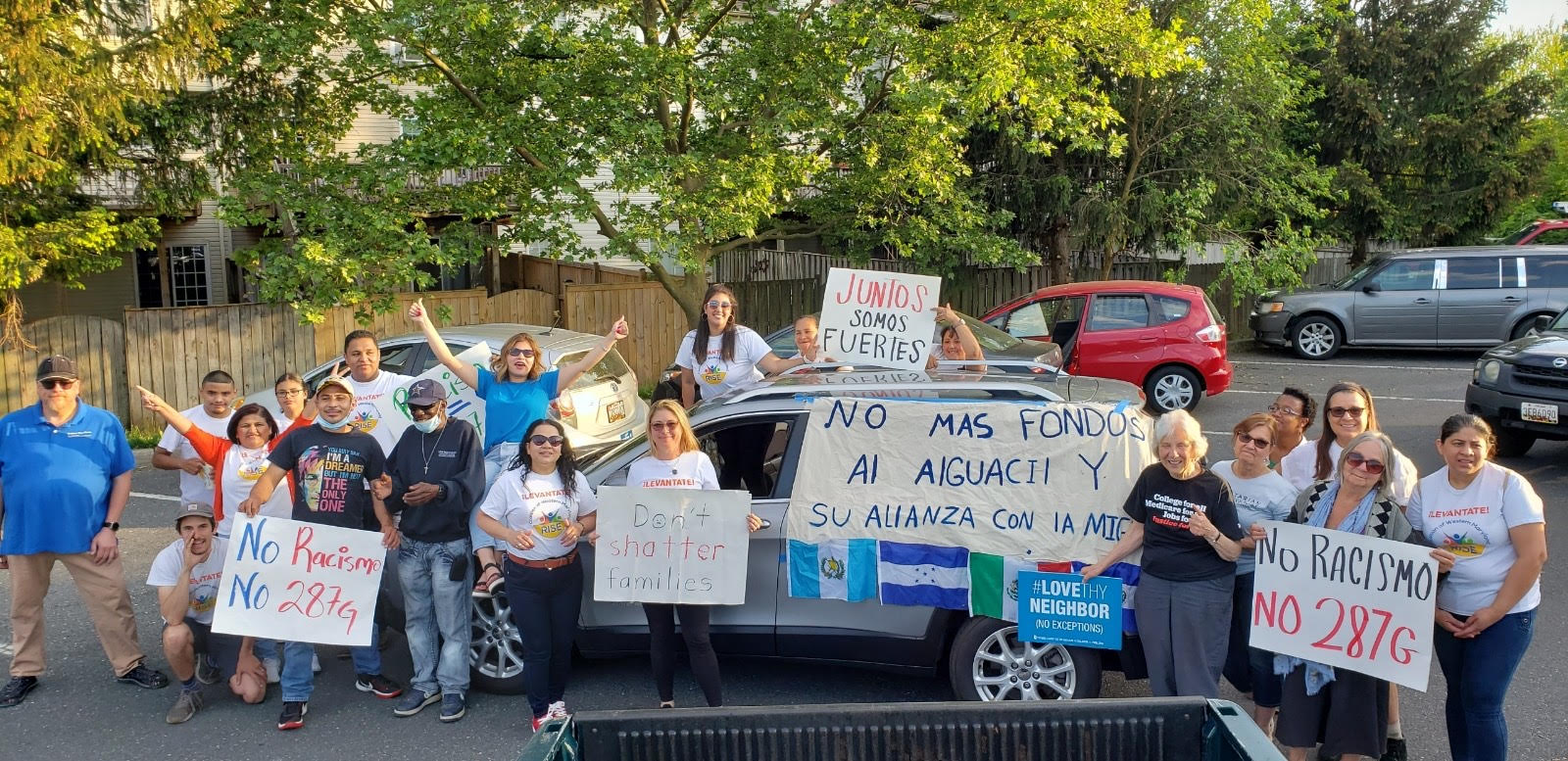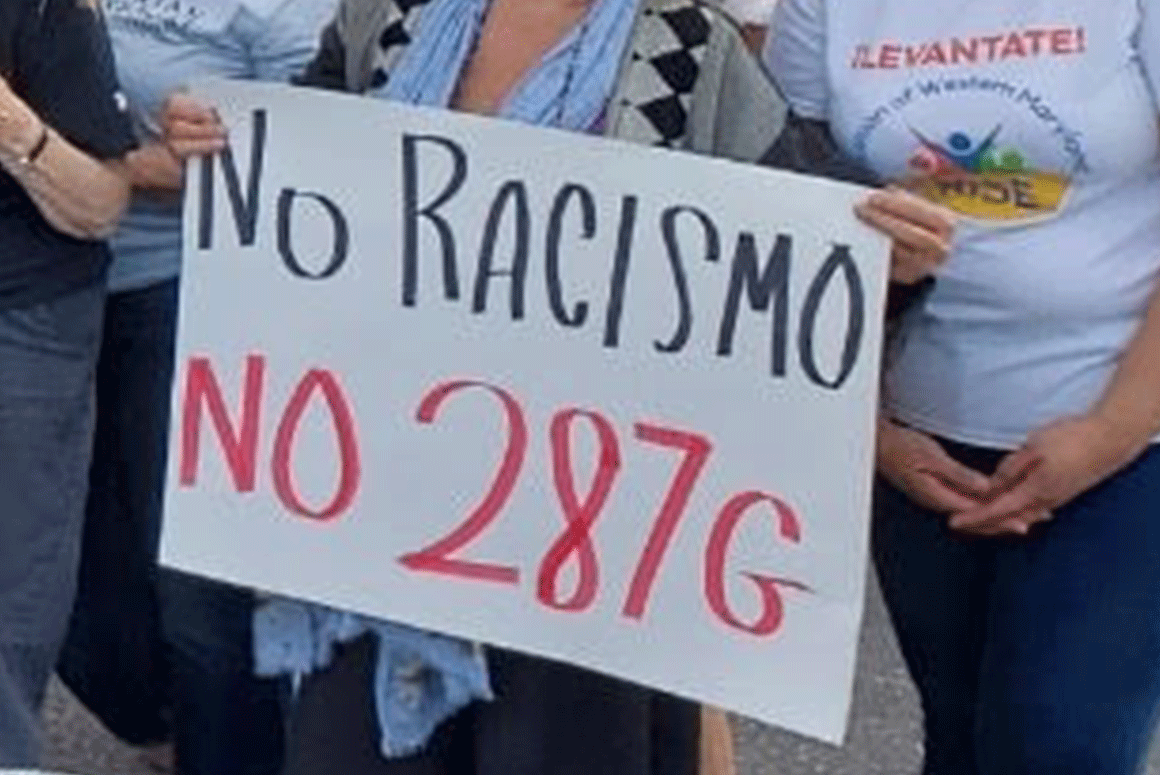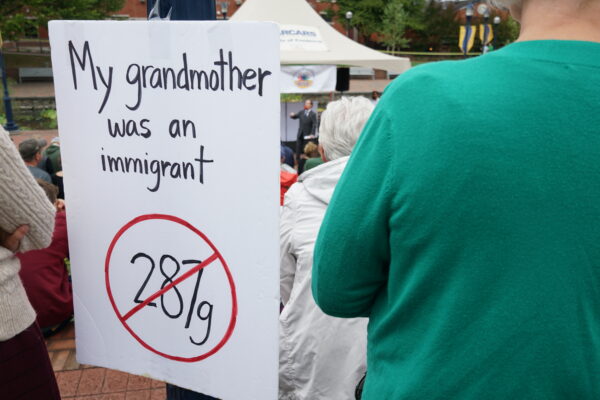New 2022 data on ICE deportations and detentions
We finally have it! It took many years, strong community demand, and a formal inquiry filed by Rep. David Trone for Frederick County Sheriff Chuck Jenkins and ICE to release information about the 287(g) program’s 2022 operation. The ACLU of Maryland now has new statistics surrounding arrests and deportations of [immigrants who previously resided in the county].

(Image above shows a SENT stamp over letterhead of Rep. David Trone who echoed the ACLU call for termination of the ICE partnership agreement with Frederick County Sheriff.)
Presently, we are still awaiting the 2023 statistics for Frederick County, which may take longer to get. In the meantime, Sheriff Jenkins has been indicted on five counts in an alleged scheme to illegally buy machine guns. The case is ongoing.
(The meme above shows Loki at a desk and says, "Yes, very sad. Anyway.")
While the case is ongoing, we still need 287(g) program updates. There should be transparency for the community in which the Sheriff serves.
Luckily, we have 2022 data from the U.S. Office of Justice. They did a nationwide evaluation of the crime reduction benefits of the 287(g) program of the United States Immigration and Nationality Act. In the report, it states, “Importantly, both 287(g) counties and denied 287(g) counties had much higher crime rates than the rest of the country. This suggests that counties were motivated, at least in part, by lack of public safety to enter into 287(g) agreements with the federal government. Whether a significant share of those crimes was committed by illegal immigrants in those counties in reality or perception is a separate issue.”
ICE has a bad tendency of exploiting U.S. counties suffering from high crime rates. Instead of the government addressing root causes of crime like poverty, access to employment opportunities and education, etc., government officials focus all their efforts on catching, isolating, and “throwing away” people, instead of helping people and the county.
The conclusion the Office of Justice came to was that they found “little evidence that (287(g) programs) are effective in achieving their goal of violent crime reduction at a national level.” The report goes on to state, “It appears that the deterrent effect that some posit will result from increasing detentions and deportations has not materialized when we examined the nationwide effectiveness of 287(g).”
(The meme above is a cat jumping toward a window and flopping.)
ICE’s promises about reducing crime with these 287(g) agreements rings hollow. It is labor in vain.
The final plea researchers give to local law enforcement agencies is “we urge local law enforcement agencies to consider whether pursuing these agreements are worth the cost, as local level funds are used to implement 287(g) agreements. It is also important to consider the potential disruption to immigrant communities that deportations may have and their negative consequences. In addition to the potential for increasing social disorganization, there are a range of other negative social, economic, political, and mental health outcomes of these policies.”
It is very true that deportation damages families and causes disastrous ripple effects in the community. Back in 2020, we looked at deportation and detention statistics. Check out our “Seven Truths Surrounding 287(g) Programs.” Today, we have compiled the latest deportation and detention statistics from ICE’s 287(g) End of Year 2022 report.
Looking at the numbers* in the past and numbers now, we cannot ignore the racism embedded in the deportation system. Around 95 percent of people deported or detained under 287(g) programs across the nation are from Latin America, including the Caribbean Islands, even though people from Latin America make up around 50 percent of immigrants in the United States. It is shocking that while Latine people make up half of the immigrants coming into the United States, they make up almost the majority of deportations and detentions under these 287(g) programs.
In 2022, ICE reported that through the 287(g) programs 473 people have been deported and there are 1,013 active cases. Below are graphs of who is being deported and who is being detained by country of origin.
We want to stress that these numbers have real faces attached to them. Sara Medrano, a Latina from El Salvador and who is a current Frederick resident, was racially profiled and stopped by a Frederick County Sheriff’s deputy for a “broken” taillight that turned out to be working just fine. The deputy asked about Medrano’s legal status before detaining and illegally holding her to try to get ICE to come pick her up.
Sara’s story of racial profiling, harassment, and fear is far from the only one. Also, in Frederick, Roxana Santos, another Latina, was sitting outside her workplace, taking a lunch break, when ICE officers captured and detained her. Their only excuse for approaching Roxana was because she was eating her food “suspiciously.”
ICE and proponents for 287(g) programs tout these brutal measures as “lifesaving” for the community. Yet they do not deliver.
In 2020, researchers from Princeton used data from the Texas Department of Safety to understand why aggressive immigrant removal programs do not deliver on crime reduction promises. Their study states: “Our analysis reveals two broad conclusions about the criminality of undocumented immigrants. First, undocumented immigrants have substantially lower rates of crime compared to both native US citizens and legal immigrants. Second, over the 7-year period from 2012 to 2018, the proportion of arrests involving undocumented immigrants in Texas was relatively stable or decreasing… In fact, our results suggest that undocumented immigrants pose substantially less criminal risk than native US citizens.”
The decreased risk to commit crimes could be due to many factors. However, study after study shows it is simply a lie pushed by politicians that immigrants are more prone to criminal activity. Racists and xenophobes equate the mere existence of Black immigrants and other immigrants of color to criminality, but this belief is both false and stems from hate. European immigrants that overbook their stay are just tourists. But all other Black or Brown immigrants are criminals.
However, despite committing a crime or being of legal status, it is wrong to rip people away from the country that they call home and tear apart families by sending individuals far away where their mothers, brothers, children, and friends who cannot see or hear from them.
Human dignity applies to every human. Let’s start respecting each other’s humanity and civil rights.

(The image above shows members of the RISE coalition holding signs. Two of the signs say, "No Racismo. No 287g.")
*Note that while we would love to have information on the races of people who were deported and detained, ICE only reported people’s country of origin.



